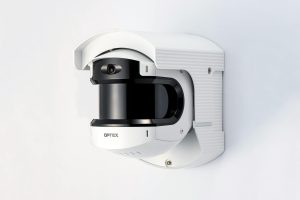Corporate Speak Decoded: What Job Descriptions *Really* Mean
When it comes to corporate jargon, we’ve all rolled our eyes at the buzzwords and phrases that are thrown around in the workplace. From “synergy” to “paradigm shift”, these terms can often leave us scratching our heads wondering what they actually mean. And nowhere is this more evident than in job descriptions.
Reading a job description can feel like you need a secret decoder ring to understand what the company is really looking for. But fear not, we’ve done the decoding for you. In this article, we unveil the truth behind the most common corporate speak used in job descriptions and break down what they really mean.
The “Dynamic” Employee
If you come across a job description that mentions a “dynamic employee”, don’t be fooled by the seemingly positive adjective. This term is often used to describe an employee who is expected to take on multiple roles and work long hours without complaint. In other words, the company is looking for someone who is willing to do the work of two or more people without any extra compensation.
This is especially true in startups or small companies where resources are limited and employees are expected to wear many hats. While being a “dynamic” employee may sound appealing, be sure to read between the lines and consider if the workload and expectations align with your career goals.
The “Self-Starter” Mentality
Another phrase that often appears in job descriptions is “self-starter”. This is a term used to describe someone who can work independently and take initiative without constant direction or supervision. Companies are looking for individuals who can hit the ground running and require minimal hand-holding.
While being a self-starter is a valuable trait, it can also be an indicator that the company has a hands-off management style. This may not be a good fit for someone who thrives in a collaborative environment or prefers regular feedback and guidance.
The “Team Player” Expectation
It’s common to see “team player” listed as a desired attribute in job descriptions. But what does it really mean? A team player is someone who can work well with others, communicate effectively, and contribute to the overall success of the team.
However, it’s important to consider the company culture and how this term is used within the organization. In some cases, being a team player may be synonymous with being a “yes” person who never questions authority or offers new ideas. This can lead to a lack of diversity and innovation within the team. On the other hand, a company that truly values collaboration and teamwork will have a more inclusive definition of what it means to be a team player.
The “Fast-Paced” Environment
Job descriptions that mention a “fast-paced” work environment are often trying to convey that the company moves quickly and expects its employees to keep up. While this can be exciting for some, it can also be overwhelming and lead to burnout if expectations are unrealistic.
Be sure to research the company’s culture and speak to current or past employees to get a better understanding of what a “fast-paced” environment truly means in that organization. It may be a great fit for some, but a recipe for disaster for others.
The “Detail-Oriented” Requirement
“Detail-oriented” is a term that is commonly used in job descriptions, especially for roles that require a high level of organization and attention to detail. However, this can also be a subtle way for a company to indicate that they are looking for perfectionism or micromanagement.
If this is a term that appears in a job description, make sure to ask questions about how it is interpreted within the organization. Are they looking for someone who can catch every small error, or do they want an employee who has a strong attention to detail but can also see the bigger picture?
The “Go-Getter” Mindset
“Go-getter” is a term used to describe someone who is driven and ambitious. While it may sound like a positive trait, it can also be a red flag for a company that puts a strong emphasis on individual achievement and competition.
If you thrive in a collaborative and supportive work environment, company cultures that value the “go-getter” mentality may not be the best fit for you. It’s important to understand how this term aligns with your personal values to determine if it’s a good match for you.
The “Ninja” or “Rockstar” Job Title
Last but not least, a job description may include a job title that includes buzzwords like “ninja” or “rockstar”. While these titles may make a job seem appealing and exciting, they can also be indicative of a company that values long hours and a “work hard, play hard” culture.
Consider if the glamour of a flashy job title is worth the potential sacrifice of work-life balance and mental well-being. It’s important to weigh all aspects of a job description, not just the title, to determine if it’s a good fit for you.
Conclusion
In conclusion, don’t let the corporate jargon and buzzwords in job descriptions intimidate or confuse you. By understanding the true meanings behind these phrases, you can better assess if a job is the right fit for you and your career goals.
Remember to read between the lines, do your research on the company culture, and ask questions during the interview process to gain a better understanding of what is expected from employees. And most importantly, trust your instincts and don’t settle for a job that doesn’t align with your values and career aspirations. Happy job hunting!











